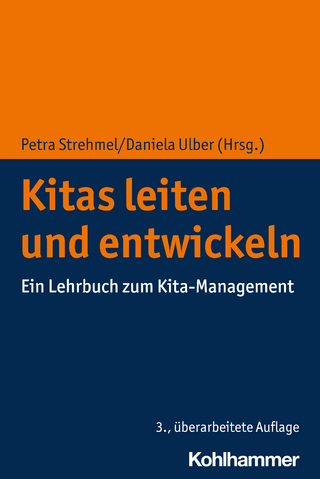
Humanitarian Extractivism
The Digital Transformation of Aid
Seiten
2023
Manchester University Press (Verlag)
978-1-5261-6582-4 (ISBN)
Manchester University Press (Verlag)
978-1-5261-6582-4 (ISBN)
Digital initiatives aimed towards ‘fixing’ the humanitarian system, making it better and more secure, also create risk and harm for vulnerable individuals and communities. This book investigates the digital transformation of aid as a form of humanitarian extractivism. -- .
This book investigates the digital transformation of aid as a form of humanitarian extractivism. It focuses on how practices of data extraction shift power towards states, the private sector and humanitarians.
Digital initiatives aimed towards ‘fixing’ the humanitarian system, making it better and more secure, also create risk and harm for vulnerable individuals and communities. Central to the digital transformation of aid is the digital body – with digital identities becoming a prerequisite for receiving aid and protection – and the centralisation of vulnerability arising from enormous databases holding ever more humanitarian data. Cyber-attacks, human error and technological problems generate risks for humanitarians, but also mean that humanitarians themselves can put populations in need at risk.
The book explores new humanitarian spaces and practices such as the humanitarian drone airspace, wearable innovation challenges and ethics in global disaster innovation labs. -- .
This book investigates the digital transformation of aid as a form of humanitarian extractivism. It focuses on how practices of data extraction shift power towards states, the private sector and humanitarians.
Digital initiatives aimed towards ‘fixing’ the humanitarian system, making it better and more secure, also create risk and harm for vulnerable individuals and communities. Central to the digital transformation of aid is the digital body – with digital identities becoming a prerequisite for receiving aid and protection – and the centralisation of vulnerability arising from enormous databases holding ever more humanitarian data. Cyber-attacks, human error and technological problems generate risks for humanitarians, but also mean that humanitarians themselves can put populations in need at risk.
The book explores new humanitarian spaces and practices such as the humanitarian drone airspace, wearable innovation challenges and ethics in global disaster innovation labs. -- .
Kristin Bergtora Sandvik is a Research Professor in Humanitarian Studies, PRIO and Professor of Sociology of Law at the University of Oslo -- .
Humanitarian extractivism: an introduction
1 Digital bodies in aid
2 The centralization of vulnerability in humanitarian cyberspace: the ICRC hack revisited
3 Power, risk and riskiness in digital humanitarian work
4 UNICEF’s Wearables for Good challenge: unpacking private-sector partnerships in humanitarian innovation
5 The early humanitarian drone airspace: flying high and failing fast
6 Beyond the humanitarian innovation ethics gap: everyday practice in field labs -- .
| Erscheinungsdatum | 13.09.2023 |
|---|---|
| Reihe/Serie | Humanitarianism: Key Debates and New Approaches |
| Verlagsort | Manchester |
| Sprache | englisch |
| Maße | 156 x 234 mm |
| Gewicht | 411 g |
| Themenwelt | Naturwissenschaften |
| Sozialwissenschaften ► Pädagogik ► Sozialpädagogik | |
| Sozialwissenschaften ► Politik / Verwaltung ► Vergleichende Politikwissenschaften | |
| Sozialwissenschaften ► Soziologie | |
| ISBN-10 | 1-5261-6582-1 / 1526165821 |
| ISBN-13 | 978-1-5261-6582-4 / 9781526165824 |
| Zustand | Neuware |
| Haben Sie eine Frage zum Produkt? |
Mehr entdecken
aus dem Bereich
aus dem Bereich
Grundlagen - Konzepte - Methoden
Buch | Softcover (2023)
Kohlhammer (Verlag)
34,00 €
ein Lehrbuch zum Kita-Management
Buch | Softcover (2023)
Kohlhammer (Verlag)
46,00 €
Orientierungswissen für die Soziale Arbeit
Buch | Softcover (2024)
Kohlhammer (Verlag)
36,00 €


